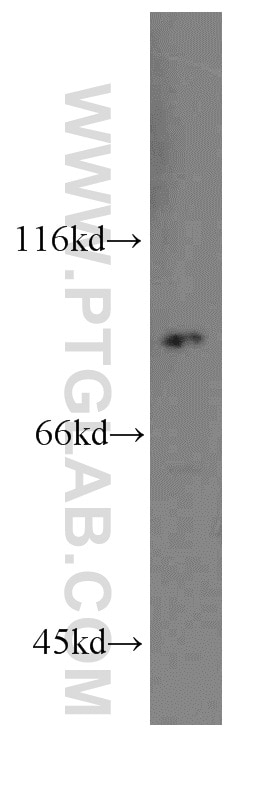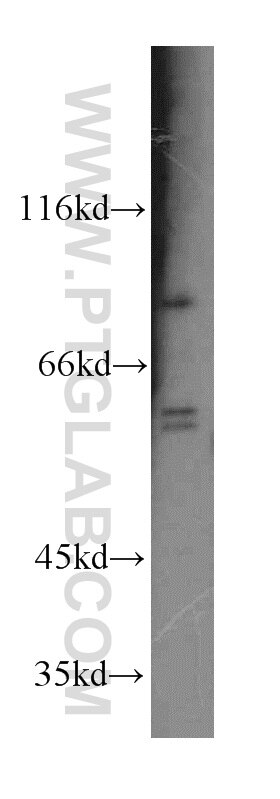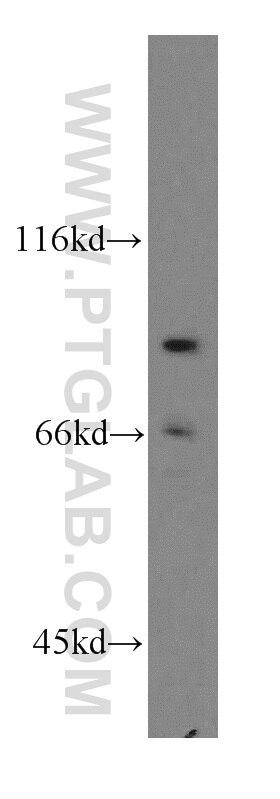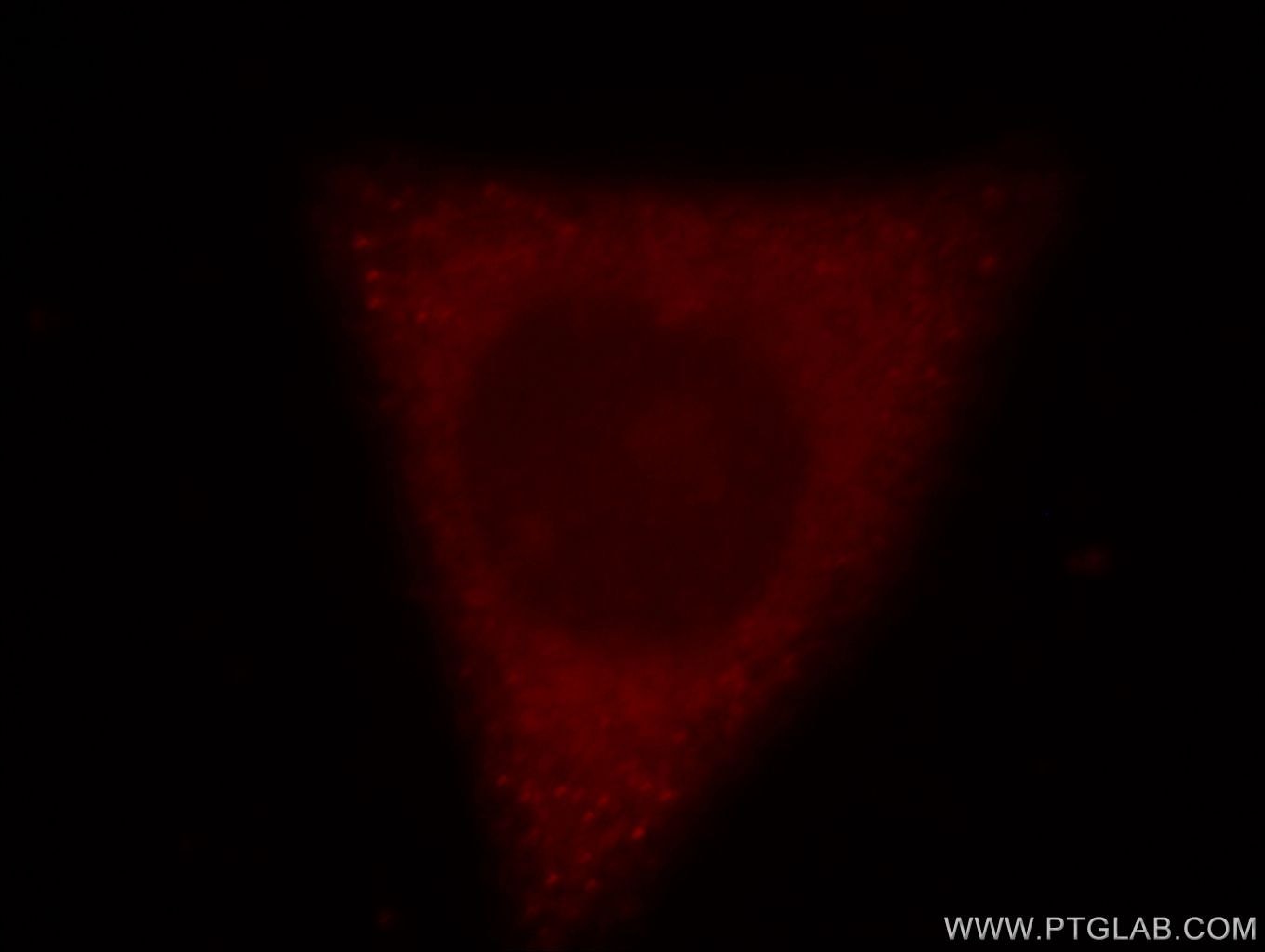RRM1-Specific Polyclonal antibody
RRM1-Specific Polyclonal Antibody for IF, WB, ELISA
Host / Isotype
Rabbit / IgG
Reactivity
human, mouse, rat
Applications
WB, IF, ELISA
Conjugate
Unconjugated
Cat no : 19686-1-AP
Synonyms
Validation Data Gallery
Tested Applications
| Positive WB detected in | A549 cells, HEK-293 cells, HeLa cells |
| Positive IF detected in | HepG2 cells |
Recommended dilution
| Application | Dilution |
|---|---|
| Western Blot (WB) | WB : 1:200-1:1000 |
| Immunofluorescence (IF) | IF : 1:10-1:100 |
| It is recommended that this reagent should be titrated in each testing system to obtain optimal results. | |
| Sample-dependent, Check data in validation data gallery. | |
Product Information
19686-1-AP targets RRM1-Specific in WB, IF, ELISA applications and shows reactivity with human, mouse, rat samples.
| Tested Reactivity | human, mouse, rat |
| Host / Isotype | Rabbit / IgG |
| Class | Polyclonal |
| Type | Antibody |
| Immunogen | Peptide |
| Full Name | ribonucleotide reductase M1 |
| Calculated Molecular Weight | 90 kDa |
| Observed Molecular Weight | 90 kDa |
| GenBank Accession Number | NM_001033 |
| Gene Symbol | RRM1 |
| Gene ID (NCBI) | 6240 |
| RRID | AB_10697654 |
| Conjugate | Unconjugated |
| Form | Liquid |
| Purification Method | Antigen affinity purification |
| Storage Buffer | PBS with 0.02% sodium azide and 50% glycerol pH 7.3. |
| Storage Conditions | Store at -20°C. Stable for one year after shipment. Aliquoting is unnecessary for -20oC storage. 20ul sizes contain 0.1% BSA. |
Background Information
RRM1, also named as RR1, belongs to the ribonucleoside diphosphate reductase large chain family. RRM1 provides the precursors necessary for DNA synthesis. RRM1 catalyzes the biosynthesis of deoxyribonucleotides from the corresponding ribonucleotides.RRM1 is a key enzyme in DNA synthesis: low level expression of RRM1 is associated with poor survival. RRM1 is a prognostic marker of NSCLC. The antibody is specfic to RRM1.
Protocols
| Product Specific Protocols | |
|---|---|
| WB protocol for RRM1-Specific antibody 19686-1-AP | Download protocol |
| IF protocol for RRM1-Specific antibody 19686-1-AP | Download protocol |
| Standard Protocols | |
|---|---|
| Click here to view our Standard Protocols |





